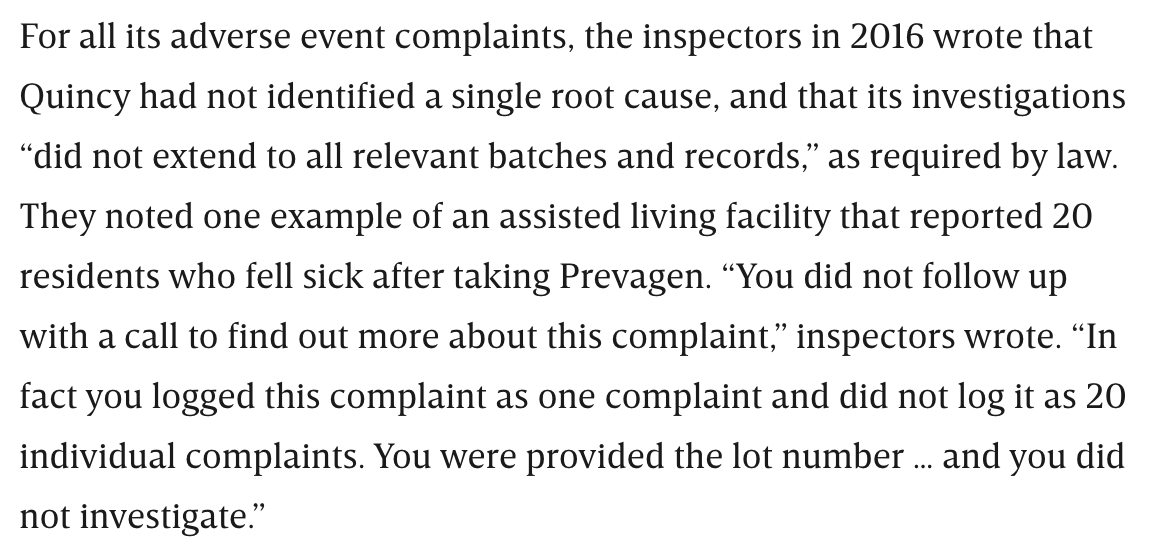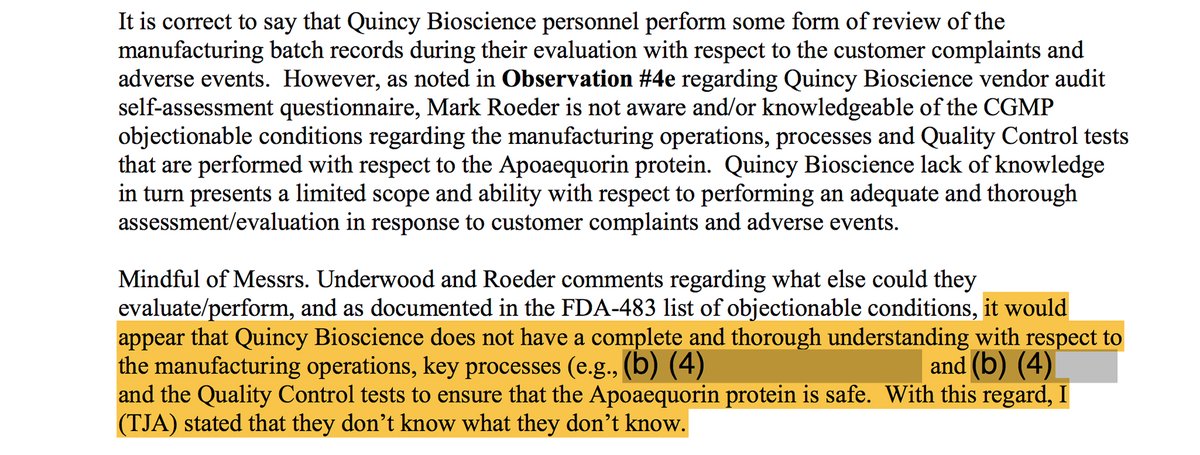For the evening crowd: Today we published an investigation by @ChiaraEisner into the years-long back-and-forth between a top US memory supplement company and the FDA over whether Prevagen was even a supplement to begin with, and whether it was safe. 1/ https://www.wired.com/story/prevagen-made-millions-fda-questioned-safety/">https://www.wired.com/story/pre...
Why was this even a question? Because the FDA often doesn’t have authority to review supplements before they hit the market. The agency doesn’t even know how many supplements there are for sale in US. It’s on companies to ensure their products are safe and lawful. 2/
As a result, to monitor the industry the FDA relies on things like inspections and especially something called “adverse event reports”: reports of any health issues experienced while taking a supplement, submitted by consumers, health professionals, and companies. 3/
FDA does not consider adverse event reports alone proof a supplement causes health issues, but AERs can be the first sign of a potential safety risk. @chiaraeisner FOIA’d 100s of pages of docs, many never reported before, that show officials raised concerns about Prevagen. 4/
For example, in 2015 a FDA review of Prevagen’s main ingredient—a synthetic copy of a protein found in jellyfish— found, “There are numerous adverse events reported pertaining to this ingredient which indicates a serious safety hazard.” 5/ https://www.wired.com/story/prevagen-made-millions-fda-questioned-safety/">https://www.wired.com/story/pre...
FDA inspection reports also cited Prevagen’s manufacturer, Quincy Bioscience, multiple years for failing to report serious AERs—including seizures, strokes, arrhythmias, dizziness—to FDA as required by law, and for not fully investigating complaints. 6/ https://www.wired.com/story/prevagen-made-millions-fda-questioned-safety/">https://www.wired.com/story/pre...
One example FDA investigators cited in a 2016 inspection report stood out to me, personally: 20 residents of an assisted living facility fell ill after taking Prevagen. The company reported it as one complaint and didn’t follow up on info they were provided. 7/
FDA had more concerns. In that same report inspectors wrote, "It would appear that Quincy Bioscience does not have a complete and thorough understanding…to ensure that the Apoaequorin protein"—the main ingredient—"is safe." Prevagen had been around for 9 years at this point. 8/
Quincy insists that Prevagen “has been thoroughly tested” and “is generally recognized as safe.” It hired a third party to handle AERs at the end of 2016, and in 2018 the FDA issued a close-out letter, its way of saying a firm corrected violations. 9/ https://www.wired.com/story/prevagen-made-millions-fda-questioned-safety/">https://www.wired.com/story/pre...
But industry watchdogs say there are still larger issues with supplement regulation. GAO reports dating back 10+ years, in response to lawmakers like @SenatorDurbin and fmr Sen. @clairecmc, warn FDA has limited info and resources to ID & quickly investigate red flags. 10/
There is MUCH more: more FDA inspections, former Quincy employees, a settlement reached this summer over false advertising claims. This investigation has been over a year in the making, and @chiaraeisner worked tireless to bring it to life. Fin/ https://www.wired.com/story/prevagen-made-millions-fda-questioned-safety/">https://www.wired.com/story/pre...

 Read on Twitter
Read on Twitter



